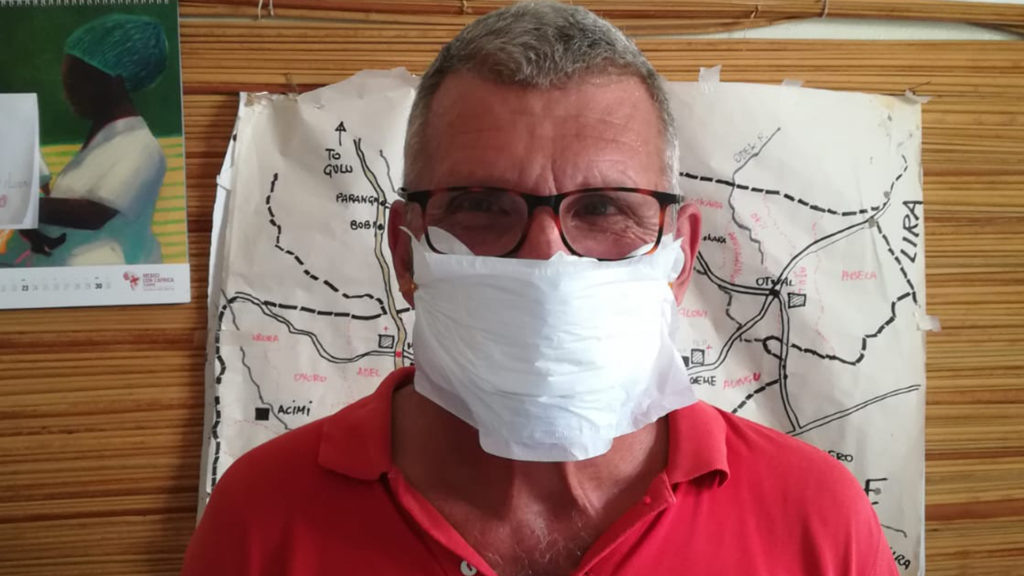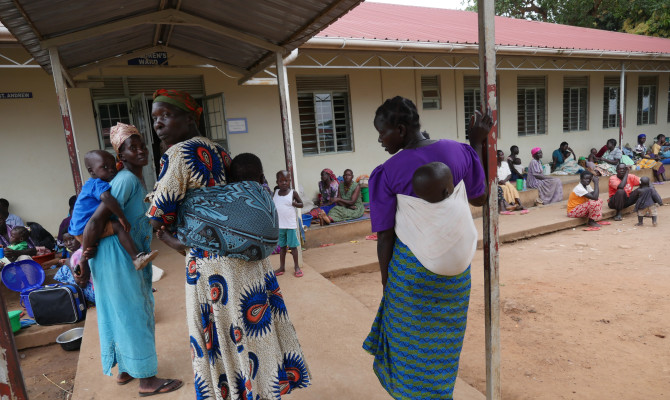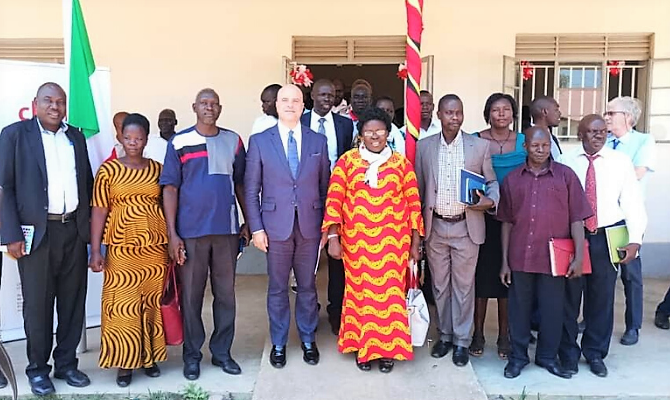From 18 March, Uganda is taking measures of social distancing at national level, similiar to those in place in Italy: every assemblies or open space meetings are banned, stores that do not sell groceries are closed and all religious events and public transports are suspended. The local population has not always taken these new norms very well, especially small shopkeepers, who live hand-to-mouth and are already experiencing economic difficulty.
In the district of Oyam, where Doctors with Africa Cuamm works, there are currently no Covid-19 confirmed cases, but physician experienced in public health Giovanni Dall’Oglio and public health specialist doctor Mattia Quargnolo are working at Aber hospital and in surrounding villages to prevent the spread of the virus.
«In rural communities – explains Giovanni Dall’Oglio – is not yet clear how important is to avoid contact and stay at home, enacting preventive standards of hygiene».
«On the other hand – tells us Mattia Quargnolo – people can still remember the past Ebola outbreaks: they associate contagion to a certain death sentence and so we are working to raise their awareness on this new virus without spreading panic».
At Aber hospital, doctors refer that admissions have decreased in recent weeks: partly because of fear of the virus and partly because of the banning of public transports, in places where ambulances are uncommon, makes it difficult for people to reach healtcare facilities.

Making hospitals safe
At Aber hospital and in the health center in Anyeke, Doctors with Africa Cuamm has prearrange a triage area where all patients are examined before properly accessing the hospital. For all suspected cases Malaria test and quarantine are forseen, so that they can access to the hospital only if any risks of coronavirus have been excluded. The WHO guidelines are followed, in line with the Ugandan government provisions, and it is expected all Covid-19 positive patients are transferred at the regional hospital in Lira to avoid health facilities from becoming points of contamination and to allow care services for mothers and children to be guaranteed. And in fact, the transport of pregnant women and babies to the healthcare facilities is still authorized, by any means of transport in case of emergency and, even in case of the virus spread, maternal and child health remains fundamental for Doctors with Africa Cuamm.
What is needed
Beyond the procedures already in place, Giovanni Dall’Oglio stresses:
«What we lack most, both in the hospital and peripheral centres, are masks for the health personnel. We cannot allow doctors and nurses to be exposed to the infection. The prices of masks and medicines cost now ten times the original value and there are those who try to transform the sanitary towels into masks: our team also produced two thousand pieces in this way, to have a minimum equipment».
«We work with local authorities – says Dall’Oglio – to better orient the response to the virus. For a while it was thought to close the district also to freight wagons that come from the capital, but we explained that it is not useful. Instead, we work hard to train staff in peripheral facilities and to explain to everyone that the biggest problem with this virus are asymptomatic patients: people who, while looking healthy, can spread the virus. For this reason it is important to insist on promoting more effective hygiene practices».
Italy seen from Uganda
Mattia Quargnolo admits to following very carefully what is going on in Italy, where there are relatives and colleagues:
«My girlfriend and my roommate work in Infectious Diseases in Bologna, so I have seen very closely the drama of the situations that are lived there. We used their stories to improve Aber’s situation, to make it clear that here we are lucky to have more time to prepare ourselves. I must say that the message has arrived. I thought about going back to Italy, but we can help here too and we are also succeeding to do an important support and prevention job».
Giovanni Dall’Oglio agrees and, despite having already seen several emergencies in Africa, admits:
«We will never forget what is happening in the world right now. We are in the front line here, we realize that our presence is important to direct strategic choices for a population of 450,000 inhabitants in this district alone. We are here, solid, our team is ready to give its best. There are no hesitations!».





